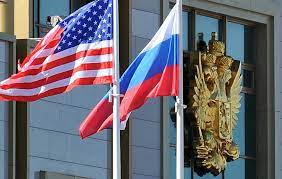
The new cold war is heating up. US fears of a Russian invasion of Ukraine are escalating by the day, as are tensions in the region. For years during the Cold War, the two countries battled it out in the European theatre—fighting over ideologies and socio-political as well as economic systems, yet, averting direct military confrontation. And once again the two giants are banging their fists in Europe. Perhaps, this time again they’ll find ways to avert a military conflict—though the risks are high, and the stakes even higher given the globalised world we live in.
The US and its European allies have issued repeated warnings to Moscow to avoid what they consider unprovoked Russian aggression in the Balkans. But for Russia, the balance of power equation spills a totally different narrative. “The fundamental Russian concerns were ignored”, Russian President Vladimir Putin has recently said. Putin was probably referring to NATO’s presence near its borders or what it sees as Russia’s sphere of influence in Eastern Europe.
PM advocates Kashmiris case at world fora as their ambassador: Farrukh
Still, as long as sense prevails on both sides, military escalation is highly unlikely given the stakes involved. Yet, the toughening of positions and attached political costs could very well push both sides into a dead-end. Whereas Putin is risking his strongman reputation, carefully and cautiously cultivated over so many years, Biden is yet to recover from the Afghan fiasco and cannot afford another humiliation in the foreign policy arena. This makes the standoff between the two countries more personal than political. Which is why the confrontation is far riskier and ongoing the brinkmanship more dangerous. From Putin’s perspective, America cannot just laugh away genuine Russian security concerns. After all, Washington wouldn’t tolerate any Russian security build up in the South American continent—the Cuban missile crisis is a stark reminder, despite the US having made the first move by planting its missiles in Turkey.
Therefore, America should not expect Russia to smile at NATO’s presence near its borders. And if Russia gains a perceived victory in the crisis and manages to push back or curtail NATO’s presence in the region, this would surely boost Moscow’s credentials as a resurging superpower. On the other hand, the US is retaking the reins as leader of the so-called free world—a role apparently abdicated during the Trump years. Seen as holding it out against China in the Indo-Pacific and Russia in Europe, a perceived diplomatic victory in the Balkan crisis would be a great personal success for Biden—arguably the first major foreign policy success since he assumed the Presidency, and a much-needed morale booster for his administration after the embarrassing pull out from Afghanistan.
ANF seizes 360 KG heroin from cargo at Karachi Port, booked for UK
For now, the US-led NATO is counting on sanctions to put pressure on Putin while Moscow tries to suck the gas out of Europe in a bid to soften their stance. But any escalation beyond rhetoric and economic punitive measures could be devastating. Both sides are trying to draw maximum concessions, yet, the ever-present danger of a military confrontation cannot be ignored. Thus, it would be wise to lower the tone and seek diplomatic solutions. For Russia to desist from stretching westward, it is imperative for NATO to stop pushing eastward. Both sides need to show restraint. But NATO in particular needs to exhibit a better understanding of Russian security concerns. War, whether limited or all out, suits no one. Today, we live in a highly connected and interdependent world—the coronavirus pandemic is the latest testimony to the world behaving as a global village—therefore, an escalation in Europe will have massive and far-reaching consequences for all states on the globe.
Quetta coal mine blast leaves five miners dead, five others injured
Should Russia choose to invade Ukraine, the US and its allies would be left in a tenuous situation. Not opting to respond aggressively could shatter NATO’s reputation as a bulwark against perceived Russian aggression. Yet, opting to respond could very well lead to a war. Thus, it would be appropriate for both sides to show restraint and refrain from upping the ante—Russia by not pushing across Ukraine and NATO by not augmenting its presence in eastern Europe.
Still, we need to be mindful that affairs amongst states are not conducted through pearls of wisdom. They are rather managed through the lens of perceived national interests. So, in the end, it is how Putin and Biden define their respective national interests that will determine the future course of events. Should they view the ongoing confrontation as a zero-sum game where a loss for one is a gain for the other, the outcome is likely going to be devastating. If, on the contrary, they choose to give diplomacy a chance, some kind of negotiated peace is quite possible.
Kashmir Day: Yadgar-e-Shuhada inaugurated in Muzaffarabad
Let’s see if they’re willing to pour some water over the simmering heat.
Source: Published in The Nation


